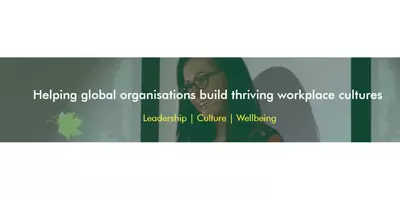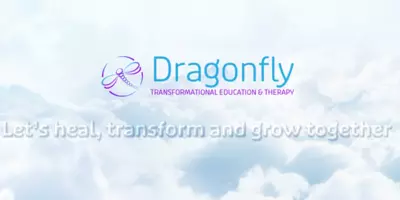
15 Sept 2025 ● Harmonia Careers
In the Spotlight: Rising from silence with Victoria Hopwood-Fox
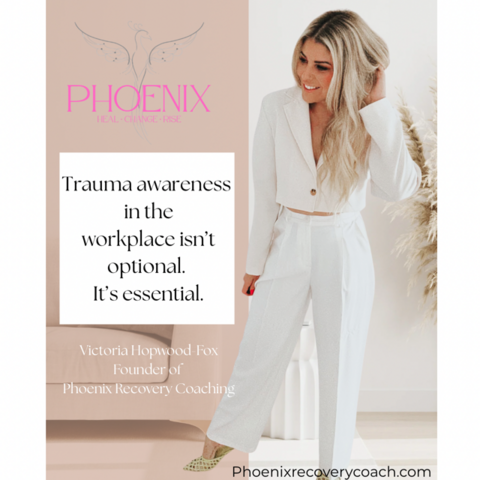
A Conversation with Victoria, Domestic Abuse Recovery Coach and Workplace Consultant.
Founder of Phoenix Abuse & Trauma Recovery Coaching, Victoria has built a practice dedicated to helping survivors of domestic abuse rebuild their lives and workplaces create safer, more compassionate environments. Her work is both deeply personal and profoundly practical, bridging the gap between individual healing and organisational responsibility.
In this Q&A, Victoria shares her journey, the challenges survivors face, and her vision for workplaces that truly support staff impacted by abuse.
Hi Victoria. It's great to meet you and thank you for sharing your story. To begin with, could you share a little bit about yourself and what led you to become a Domestic Abuse Recovery Coach?
Hi! I’m a Domestic Abuse Recovery Coach and Workplace Consultant, and the founder of Phoenix Abuse & Trauma Recovery Coaching. My journey into this work is deeply personal. For many years, I lived through an abusive relationship while maintaining a professional career. I became a pro at hiding the reality of my situation from everyone around me. When I finally broke free, I started sharing my story on Instagram as a way of processing my own recovery. One post went viral, and suddenly I was connecting with thousands of people who related to what I was saying. Their messages, questions, and words of gratitude made me realise how many survivors were still suffering in silence and how much support was needed. That’s what inspired me to train as a coach and expand into consultancy work with organisations. Today, I help survivors rebuild their confidence and break trauma bonds, while also working with employers to create safer, more supportive workplace cultures for those affected by abuse.

You’ve spoken bravely about hiding your experience of domestic abuse from colleagues for years. What helped you finally find your voice and speak out?
For me, it was reaching a point where the silence became heavier than the truth. Carrying such a big secret while trying to function in the workplace was exhausting and I knew I couldn’t keep going that way. Once I had broken free, I started an Instagram page to share snippets of my journey, almost as a form of self-expression and healing.
One of my posts went viral, and suddenly I had this incredible community forming around me. With the followers came messages from people who were going through the same thing, asking for advice or simply saying, “thank you for putting this into words.” That response lit something in me. It made me realise how many others were suffering in silence, and it gave me the drive to keep speaking out, not just for myself but for all the people who didn’t yet feel ready to use their voice.
Sadly, you’ve also candidly shared that when you did speak out, you were punished rather than supported. Can you tell us a little more about what this was like? What do you think this says about the workplace response to domestic abuse?
When I disclosed my experience, I expected understanding and support, but instead I was met with judgment and even career repercussions. It was devastating, because the workplace should be a safe place and yet my vulnerability was used against me. Sadly, this isn’t uncommon. Too often, organisations don’t know how to respond, so they either minimise, blame, or avoid the issue altogether. It highlighted for me how urgently we need better awareness, policies, and training in workplaces. Survivors should never have to choose between their safety and their career and that’s why I now work with organisations to change this culture.
Why do you believe domestic abuse is not just a personal issue, but also a workplace issue?
Domestic abuse doesn’t stay at home, it impacts every area of a survivor’s life, including their work. Survivors might be dealing with trauma, sleep deprivation, harassment from their abuser during work hours, or the emotional toll of trying to keep everything hidden. All of this can affect performance, attendance, and mental health.
Workplaces also have a responsibility: often being one of the few consistent touchpoints where survivors can be seen and supported. From my perspective as both a coach and consultant and someone who has been there, recognising domestic abuse as a workplace issue not only protects staff but also benefits organisations through increased wellbeing, retention, and trust.
In the year ending March 2024, an estimated 2.3 million people aged 16 and over in England and Wales experienced domestic abuse.
— Office of National Statistics (ONS)


In your coaching work, you talk about trauma bonds. For those who may not be familiar, could you explain what they are and why they’re so powerful?
A trauma bond is the deep emotional attachment that forms between a survivor and their abuser, created through cycles of abuse and intermittent kindness. It’s what makes it so hard to “just leave.” Your brain and body become wired to crave the moments of love or calm, even though they’re mixed with fear and pain.
This push-and-pull dynamic keeps survivors stuck and doubting themselves. Breaking a trauma bond takes time, self-compassion, and support; which is why I focus so much on helping survivors understand what’s happening and learn tools to reclaim their independence and sense of self.
What are some of the biggest challenges survivors face when rebuilding their lives, and how do you support them through that journey?
Rebuilding after abuse is not just about leaving, it’s about rediscovering who you are without the control and fear. Survivors often struggle with self-doubt, guilt, financial insecurity, and the loss of confidence that comes from years of being diminished. When I first started sharing my journey online, I realised how many people felt the same: lost, unsure, and searching for hope.
That’s why I now walk alongside survivors in my coaching, offering both practical strategies and emotional support. That might include teaching grounding techniques, setting healthy boundaries, building self-worth, or creating a vision for their future. The most important part is letting survivors know they don’t have to do it alone.
You also partner with organisations to help them create safer and more supportive workplaces. What are some key steps employers can take to better protect and support staff impacted by domestic abuse?
The first step is awareness. Educating leaders and HR teams to understand what domestic abuse looks like and how it shows up in the workplace. From there, clear policies need to be in place that outline how disclosures will be handled with safety and confidentiality.
Practical support is also vital, such as offering flexible working, paid leave, or secure ways for survivors to communicate. Culture is also just as important, creating an environment where staff know they will be believed, supported, and never punished for speaking up. As a workplace consultant, I help organisations put these steps into action in ways that are realistic and sustainable.
An estimated 45% of individuals experiencing domestic abuse report mental or emotional problems that interfere with their ability to function at work or school.
— Women's Aid
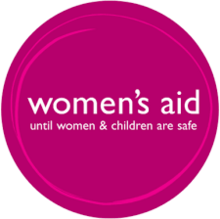
From your perspective, what role do colleagues and managers play in recognising and responding to signs of abuse?
Colleagues and managers aren’t expected to be experts, but they can play a vital role simply by noticing changes and showing compassion. That might look like checking in privately if someone seems withdrawn, or being flexible when a colleague needs time off.
The key is not to push, but to listen without judgment and signpost to appropriate support. Survivors often feel isolated, so knowing someone at work cares and believes them can make all the difference.
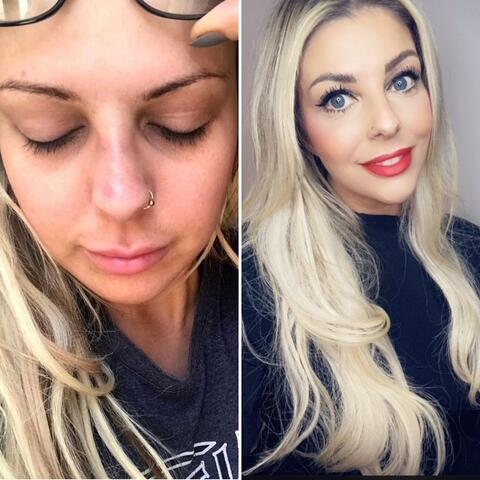
What message would you share with survivors who might still feel silenced or afraid to speak up at work?
I want survivors to know that your experiences are valid, your voice matters, and you deserve support - not punishment. It’s okay if you’re not ready to share; your safety comes first, always. But please know that the shame is not yours to carry. You are not weak for what you’ve been through; you are surviving something incredibly difficult.
When you’re ready, there are safe ways and safe people to reach out to. You don’t have to go through it alone.
Finally, looking ahead, what is your vision for a workplace culture that truly supports survivors of domestic abuse?
My vision is for every workplace to be a place of safety and empowerment where survivors feel seen, supported, and never judged. That means normalising conversations around domestic abuse, ensuring policies and protections are in place, and training staff at every level. A culture of compassion and understanding not only helps survivors heal but also builds stronger, more resilient organisations.
Through my consultancy work, I’m committed to helping employers take real, practical steps toward this vision. And just as sharing my voice online grew into a community and then a career, I believe workplaces too can grow into powerful communities of support that truly change lives.
Thank you, Victoria. For speaking up and sharing your powerful journey and insights. Your dedication to supporting survivors of domestic abuse and advocating for safer, more compassionate workplaces is truly inspiring.
We're privileged to have had the opportunity to spotlight your invaluable contributions.

About Victoria
Victoria is a trauma-informed Domestic Abuse Recovery Coach and Consultant, dedicated to empowering survivors of abuse to reclaim their confidence, boundaries, and future. Through her online coaching programs, she support individuals navigating the aftermath of coercive control, emotional abuse, and trauma bonds — offering practical tools, compassionate guidance, and structured recovery frameworks.
In addition, she also partners with businesses, HR leaders, and organisations to create safer, more responsive workplaces, delivering sessions on how to recognise signs of abuse, respond safely to disclosures, and help build policies that support employees experiencing domestic abuse.
Whether she's helping a survivor break the cycle or equipping a company to respond with care — her mission is the same: to transform silence into safety, and survival into strength.
